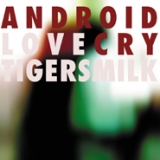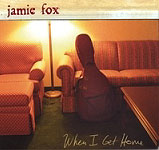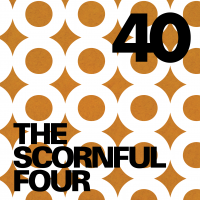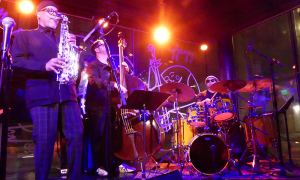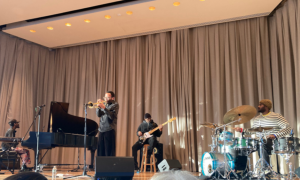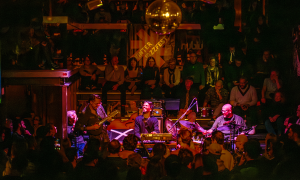Home » Jazz Articles » Live Review » Punkt 07 - Kristiansand, Norway - Day Three, August 31, 2007
Punkt 07 - Kristiansand, Norway - Day Three, August 31, 2007
While other festivals feature a diversity of artists across a longer period of time, there's simply no festival other than Punkt that manages to pack so much into three days of programming—and create the kind of environment where unexpected collaborations catalyze real magic, and expected encounters do the same by being given the free reign to try absolutely anything. Over its three-day run there are thirteen acts in the 500-seat Agder Theatre, and thirteen live remixes in the Alpha Room. It would be a little overwhelming if it weren't so exhilarating. It's not just about breaking down artistic boundaries, it's about eliminating any kind of barrier—artists, media and fans are able to interact throughout the festival, creating relationships that carry over from year-to-year, with an ever-growing "Punkt Family."
Chapter Index
- Solveig Slettahjell/Slow Motion Quintet
- Solveig Slettahjell/Slow Motion Quintet Live Remix: Scanner/David Rothenberg
- Trio Mediæval
- Trio Mediæval Live Remix: Erik Honoré/Nils Chr. Moe-Repstad
- Kammerflimmer Kollektief
- Sweet Billy Pilgrim
- Sweet Billy Pilgrim Live Remix: Sidsel Endresen/Jan Bang/Erik Honoré
Solveig Slettahjell/Slow Motion Quintet
Norwegian vocalist Solveig Slettahjell and her Slow Motion Quintet— pianist/keyboardist Morten Qvenild (of In the Country), trumpeter Sjur Miljeteig, bassist Mats Eilertsen (familiar to fans of ECM artists including Jacob Young and Thomas Strønen's Parish ) and drummer Per Oddvar Johansen (member of the collaborative ECM group The Source and co-Source member Trygve Seim's group)—have a premise that, in the hands of lesser mortals, would sound suspiciously like shtick: take jazz standards and slow them down. Way down.
But over the course of a series of albums the group has made a strong case for the premise. Much in the way that Norwegian pianist Tord Gustavsen has created a critically acclaimed career out of mining the subdivisions in medium-to-slow tempos, Slow Motion Quintet proves that just because it's slow doesn't mean it can't be powerful. The group's performance, opening Day Two of Punkt programming, was not just dynamic: at certain points it kicked serious butt.
Slettahjell performed material largely from her most recent release, Good Rain (ACT, 2006), her first album of largely original material. But while the songs are distanced from the standards she's sung in the past, the approach is the same.
Slettahjell possesses the kind of voice that can stretch out a lyric and find plenty to do with it, while avoiding the kind of melodramatic bravado many singers rely upon to create energy. While she lacks nothing in the power department, it's her way of making a phrase sustain almost indefinitely, letting it finish conclusively but subtly, that's one of her greatest strengths. Capable of power and a surprising range, which revealed itself more as the set progressed, it's her ability to use her skill with great care that makes it all the more dynamic when she does raise the temperature.
The same restraint that Qvenild demonstrates with In the Country was at work here. While he used synthesizers to create pads, occasional rhythm programs and, at times, a strange, almost underwater-sounding ambience, it was his piano playing that dominated, despite being largely understated. His approach, while spare, isn't averse to idiosyncratic twists and turns that upend even relatively conventional changes, vamps or pedal tone-driven tunes. Miljeteig acted largely as a foil for Slettahjell, mirroring or responding to her lines, but also creating some unusual textures of his own. It seems that Norway has the market cornered on expanding the sound of the trumpet, based on Miljeteig, Mathias Eick, Arve Henriksen and Nils Petter Molvær.
Eilertsen has proven, depending on the context, to be equally capable in a firm supporting role or an interactive conversationalist one. Here he's largely an anchor, which is a good thing, since Johansen has emerged as one of the most temporally flexible drummers since Jon Christensen. Like Christensen, he's capable of maintaining a pulse, but often in ways that are either implied or, like a house of cards, resting on a fragile combination of elements. Still, as the set ended he played with a near rock edge that would surprise those only familiar with his more nuanced work for ECM.
While encores are often requested but relatively rarely permitted in order to keep Punkt's tight schedule on track, the enthusiastic audience refused to let Slettahjell and the group off the hook. It's a good thing the quintet chose a more relaxed song or they'd never have managed to leave the stage.
Solveig Slettahjell/Slow Motion Quintet Live Remix: Scanner/David Rothenberg
If there are no rules at Punkt shows, the live remixes in the Alpha Room are the equivalent of unfettered sonic laboratories, where the music from the previous theatre show is altered, often beyond all recognition, while the artists who participate in the remix are encountering not just the music but each other for the first time. David Rothenberg is an American clarinetist/philosophy professor with a small but intriguing discography and no small acquaintance with sound sculpting—including work with recorded bird sounds that is a far cry from the New Age meanderings of most music/nature collaborations. Scanner is Robin Rimbaud, a British ambient/electronic experimentalist who has collaborated with other sonic manipulators including Bill Laswell and DJ Spooky.
The remix of Solveig Slettahjell and Slow Motion Quintet began in dark territory, with a dense pulse over which Rothenberg layered some avant-tinged lines. As a more propulsive and techno pulse began to emerge, Slettahjell's voice was twisted and turned, sped up and slowed down while Rothenberg continued to work with the harmonic foundation created by Slow Motion, although Scanner's beats brought up the tempo. Rothenberg's engagement with the music was clear—the most visually engaged artist on the 2007 Punkt roster next to Jan Bang. Switching to a wooden flute, and then a Norwegian flute variant, he began to loop his own playing, adding to the vertical depth of the remix.
A second remix took a more decidedly melodic turn, despite a certain chaotic element at the start. Rothenberg, returning to clarinet, managed to add a percussive element by slapping the keys of the instrument, while Scanner's liberal processing of the feeds from Slow Motion turned the piece into another compelling example of how radically different a piece of music can be perceived from different vantage points. For a first encounter, Rothenberg and Scanner were clearly in synch.
Trio Mediæval
Since emerging with the remarkable debut, Words of the Angel (ECM, 2001), the Norwegian Trio Mediæval has carved a unique path through classical vocal repertoire, first with early music and then more contemporary fare on Soir, dit-elle (ECM, 2004), where the three sopranos tackled music by composers including Gavin Bryars, Ivan Moody and Andrew Smith. Stella Maris (ECM, 2005) was a mixed program for the trio of Anna Maria Friman, Linn Andrea Fuglseth and Torunn Østrem Ossum.
For the trio's Punkt debut, it previewed some of the music from its forthcoming album, Folk Songs (ECM, 2007), which focuses on Norwegian folk material. But while it's a new musical direction for the trio, the near-telepathic connection between the three singers remains definitive and is reflective of a personal style that's independent of the century or country from which the music comes.
Hearing Friman, Fuglseth and Ossum on record is stunning; watching them live reveals just how deep the connection between them is. Not only do they manage to cue each other with the subtlest of visuals; they have the uncanny ability to pass a melody between themselves, like a tag team, with whoever is passing the melody shifting to an accompaniment role so seamlessly that, unless you're watching, you might miss it entirely.
That's not to say each singer doesn't have a distinctive voice, which became evident—not only on the occasions where one vocalist took a clear lead—but in the way they were mixed, positioning them in the soundscape so that it was possible to synchronize the voices with their physical positions on stage. When Trio Mediæval sings together, the sound is so unified that they can speak with a single voice while, at the same time, often creating a sound that implies more than a trio. Every voice is so pure, so clear and unaffected, that it's no wonder they've become critically acclaimed and well-received by audiences around the world. Overnight successes are rare in the classical world, but if there's an exception, it's Trio Mediæval, and rightly so.
The performance was advertised as having special guests, but it wasn't until halfway through the set that Jan Bang came onstage—his table of electronic gear draped in white cloth and, when bathed in the black light that shone on it, in soft contrast to the trio's position out front. The more musical situations in which Bang is heard, the clearer it becomes just how big his ears are. Far from treating every situation the same way, Bang's sampling of the trio demonstrated just how sensitive he is to every context. His live sampling was more subtle, although he did, at points, loop the trio to create an even richer complexion. Low drones and faint pulses were beautifully integrated, making even the most electronic of sounds feel organic and connected to the trio.
The trio's second guest was trumpeter Arve Henriksen, whose own falsetto voice was, remarkably, in the same range as the trio's. But before he sang in the trio's finale, his shakuhachi-like trumpet added yet another texture, further expanding the horizons for the trio. That this trio—considered by many to be entrenched in the classical arena—is capable of adapting to sounds and technology far removed from that sphere is a testament to its flexibility, and a clear indicator that its already broad repertoire is but a hint of things to come.
The dissolution of musical barriers may be de rigueur for Punkt, but the incredible beauty of Trio Mediæval's performance and its defiance of easy pigeonholing will no doubt make it a highlight of the 2007 festival.
Trio Mediæval Live Remix: Erik Honoré/Nils Chr. Moe-Repstad
With the latitude allowed by Punkt's live remix concept, there's always the risk of tarnishing the source material by overworking it. For the live remix of Trio Mediæval's show, Punkt co-founder Erik Honoré took its flawless performance as a foundation, alongside an Alfred Schnittke requiem and subtle but effective sound samples, to build a musical landscape for Kristiansand author Nils Chr. Moe-Repstad's poetry reading. The subject matter was decidedly dark, referencing World War II atrocities, and placed Trio Mediæval's purity in seemingly conceptual contrast with the bleakness of Moe-Reptad's spoken words. Yet, when everything came together, it all made surprising sense.
The sparseness of Honoré's soundscape, and the way in which he buried Trio Mediæval amongst the other sound sources, felt somehow of a kind with Gavin Byrars' The Sinking of the Titanic (Point, 1995). But Moe-Reptad's delivery— sometimes the barest of whispers, other times considerably more forceful—took the remix to a different space where the same line, delivered with different emphasis, took on altered significance.
The remix was another example of Punkt's determination to see various forms of artistic expression—music, verse, visual and more— integrated in new and innovative ways.
Kammerflimmer Kollektief
Since emerging in the latter part of the 1990s, Germany's Kammerflimmer Kollektief has garnered considerable attention. Evolving from a solo project by guitarist/electronic experimentalist Thomas Weber, it grew to a sextet of multi-instrumentalists before paring down to the core trio of Weber, double-bassist Johannes Frisch and harmonium player/vocalist Heike Aumüller. Still, on its most recent release, Jinx (Staugold, 2007), the trio all played additional instruments, and was augmented with a series of guests on its eight tracks.
Perhaps that was the problem with its performance at Punkt. Reduced to the trio and with Frisch staying solely on double-bass, Aumüller on harmonium (and, on two pieces only, vocals) and Weber working with a relatively limited arsenal of samples/processing and electric guitar, there was too little variation in the set to keep things interesting. The trio has been considered a confluence of jazz, psychedelia and ambient music, but while there was certainly a fair amount of ambient textures, the psychedelia and jazz elements were harder to find. Weber seemed content to stick with very simple vamps—either strummed chords or using a slide on his guitar—over his ambient washes and occasional loops; meanwhile Aumüller's generally repetitively minimalist harmonium work might have been trance-inducing, but also often became simply dull.
Frisch was the focal point for the group—both visually and as the primary solo voice. Using a bow to eke out everything from dissonant harmonics to jagged scratches, and with a pizzicato style that may well have been free but was marred by a too-sharp tone and, on occasion, less-than-perfect intonation, his approach ultimately, too, lost its sense of surprise.
It's a shame, since the group has garnered such critical acclaim that there's clearly more to it than met the eye at its Punkt performance. But either the group has to consider expanding again to provide greater interest and diversity in performance, or rethink its approach as a trio to ensure the same.
Sweet Billy Pilgrim
Sweet Billy Pilgrim front man Tim Elsenburg's remix of Huntsville's performance the previous day was a generally atmospheric affair, a gentle coda to Huntsville's more assertive set. Sweet Billy Pilgrim's theatre performance, closing out Day Two of Punkt programming, found Elsenburg alongside Anthony Bishop on banjo and backup vocals. Too electric (and eclectic) for folk but too soft for the indie rock label, it was, quite simply, a set of captivating songs that demonstrated Elsenburg's fine way with words and his strong grasp of looping and other processing—despite a borrowed and tuning-challenged guitar which, as Elsenburg said, came from "a very nice man but [whispering] it's not very good."
But it was easy to forgive techn ical matters, as Elsenburg delivered terrific lines like the dark "I see a dead man with his dying left to do." Astute observations were juxtaposed with a certain naivet? and tenderness, and in many ways this pared-down version of Sweet Billy Pilgrim left Elsenburgs's writing, playing and voice fully exposed. Bishop may have been off to the side of the stage, but he was a strong vocal foil, and added some of his own comic relief towards the end of the set as Elsenburg tried to tune the untunable.
Guitar troubles aside, Elsenburg's an intriguing player who seems to combine a hint of Richard Thompson's visceral bends with Robert Fripp-like sustained distortion. He avoids any undue virtuosity, but the changes he writes for songs, the interval he sometimes uses, and the way that he layers multiple loops, belies a greater facility. As does his use of altered tunings.
Elsenburg is also a wonderfully self-effacing artist. His lyrics may have depth and, at times, severity, but his between-song patter was entertaining. As soon as the house brought up the lights following his comment about being unable to see the receptive audience, he immediately quipped: "I had a vision of the lights coming on and nobody being there. It's happened... a lot."
Elsenburg also played harmonium, as he did at the Huntsville remix. Sweet Billy Pilgrim may not have been there in trio form, but with Elsenberg as front man and songwriter, and Bishop on comfortable support, it was there in spirit, and gave the audience a chance to hear his songs in a more intimate setting.
Sweet Billy Pilgrim Live Remix: Sidsel Endresen/Jan Bang/Erik Honoré
There simply isn't another singer like Sidsel Endresen. Not in Norway, not anywhere. Then again, it may not even be accurate to call her a singer anymore, since that somehow diminishes what she's been working on for the past several years. Her most recent album, One (Sofa, 2006) may not be a first choice at parties, but it's a groundbreaking work that consolidates the wealth of vocal techniques she's been honing. Still, she continues to develop them, as a capacity audience heard at the last live remix of the day, where Endresen was joined by both Jan Bang and Erik Honoré to tackle Sweet Billy Pilgrim's set.
Beginning alone with the remarkable vocal sounds that range from guttural utterances to what seem like brief conversational snippets, Endresen began to weave in a more melodic phrase ("I don't want to be alone in here") as well as a line from one of Elsenburg's songs ("I am a bullet"), as Bang sampled her voice and, by feeding it back to her, created a near cacophony of conversational voices to which Endresen continued to respond. That Endresen could seamlessly shift from odd vocal effects to high register melodies and lower register spoken word at the blink of an eye shows just how far her innovations have evolved since One.
But what was missing on One was Endresen's gorgeous singing voice. Even her performance as part of the Jazzland Community, at the 2007 Montreal Jazz Festival, didn't demonstrate the full range and expression of which she's capable. Nor did either context show how well she works with Bang and Honoré as a part of a three-way musical conversation that was as remarkable for her ability to evoke sounds that others would require significant processing to achieve as it was for both Punkt founders' real-time sampling, remixing and soundscaping skills.
This was also the first opportunity Punkt 07 audiences have had to see Bang and Honoré work together in a live setting. Watching them interact, it's no surprise that, four years after first conceiving of Punkt, the two continue to enjoy collaborating on a variety of levels. And as telepathic as they were, Endresen was equally linked, making this live remix—the most heavily attended (and, no doubt, eagerly anticipated) so far this year—another festival high point. Endresen, Bang and Honoré all represent the kind of fierce imagination that's all the more remarkable when considering the vibrant music scene in Norway, a country whose population is about one-quarter that of the greater metropolitan area of New York City.
Tomorrow:
Performances: Kristiansand Symphony Orchestra/Arve Henriksen/Jan Bang, David Toop, Charles /Grydeland/ Wallumrød/Zach, Robin Guthrie, Burnt Frieman/Jaki Liebezeit/Hayden Chisolm.
Live remixes: Bugge Wesseltoft/Michiyo Yagi, Hans Appelquist, David Toop/Arve Henriksen/Jan Bang /Erik Honoré, Russell Mills/Undark/Eivind Aarset/Jan Bang/Erik Honoré, Jon Hassell/guests.
Visit Solveig Slettahjell, David Rothenberg, Scanner, Trio Mediæval, Arve Henriksen, Jan Bang, Erik Honoré, Kammerflimmer Kollektif, Sweet Billy Pilgrim, Sidsel Endresen and Punkt Festival on the web.
Photo Credit
Jan Hangeland (also at MySpace)
Day 1 | Day 2 | Day 3 | Day 4
Tags
PREVIOUS / NEXT
Support All About Jazz
 All About Jazz has been a pillar of jazz since 1995, championing it as an art form and, more importantly, supporting the musicians who make it. Our enduring commitment has made "AAJ" one of the most culturally important websites of its kind, read by hundreds of thousands of fans, musicians and industry figures every month.
All About Jazz has been a pillar of jazz since 1995, championing it as an art form and, more importantly, supporting the musicians who make it. Our enduring commitment has made "AAJ" one of the most culturally important websites of its kind, read by hundreds of thousands of fans, musicians and industry figures every month.



